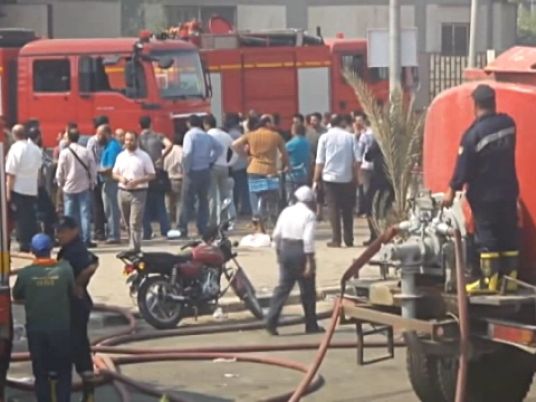Around 30 Cairo-based bloggers and activists were arrested Friday morning on their way to Naga Hammadi, a town in the southern province of Qena, and the site of recent sectarian clashes between Muslims and Christians and a fatal shooting that killed six Coptic Christians on Christmas eve and a Muslim church guard.
The bloggers are among a bigger group of Egyptians that include politicians like Osama Ghazali Harb of the liberal Democratic Front Party, Kifaya leader George Ishaaq and Cairo university professor and opposition leader Mohamed Abul Ghar. Split in two separate groups, one en route to Naga Hammadi by train and the other by bus from Luxor, they were heading to the small town in order to meet Bishop Kirollos of the Naga Hammadi Diocese, in addition to the families of those who lost their lives in the violence a week earlier, not only in order to console them but also to show solidarity.
The group who was on the train, all younger activists, were stopped by the police, "their cell phones and identification cards were taken from them," Abul Ghar told Al-Masry Al-Youm on the phone shortly after he spoke to one of the activists before his phone was taken from him, and apparently switched off immediately. According to Abul Ghar, they were taken to a Naga Hammadi police station, but it’s "unclear what will happen to them." Among the 18 are prominent bloggers Wael Abbas, Mustafa el-Naggar, Ahmed Badawi, Shahinaz Abdel Salam, Mohamed Khaled known by his alias "Demagh Mak" and human rights activist Paula Abdo — himself an eyewitness to some of the clashes that occured earlier in Naga Hammadi following the shooting.
Khaled told Al-Masry Al-Youm by phone as he was being transferred to the police station that they were arrested the moment they stepped on the platform in Naga Hammadi’s train station. But the phone connection was cut off so it wasn’t possible to get more details.
Abul Ghar said that he spoke to security chief of Qena and the latter "promised that he will release the kids. But I’m not sure if this will happen." He and other senior activists have stood for hours in front of the police station, awaiting the release of the youth.
At 6:30 PM, Al Masry Al Youm managed to reach Amira el-Tahawy, one of the female bloggers who were detained alongside seven other girls in a separate facility inside Qena’s central security department. El-Tahawy, who was obviously crying as she spoke, said that they were left without food or water for 10 hours. "We’ve been sitting on the cold floor now since 8:30 in the morning. No one is talking to us or explaining anything. They just brought us food after ten hours of starvation but we’re not touching it. The girls and I have decided to go on a hunger strike until we know what’s going on."
El-Tahawy said that they have been informed minutes before receiving the phone call from Al Masry Al Youm that they may be transfered to a deportations vehicle soon and moved to another city, possibly Cairo. "But we don’t know for sure where it’s taking us," said el-Tahawy.
Police in Egypt has the right to arrest or detain arbitrarily and without warrant under both the emergency and regular laws, according to Ahmed Ragheb, a lawyer at Hisham Mubarak’s human rights and law centre, and who is also following the bloggers’ case. However, police can only keep the arrested in detention until a charge is announced or refer the arrested to the prosecution office in the presence of an official charge; "but in this case deportation to a different city is illegal and unlawful, especially that no charges have been pressed so far against any of them."
Fellow bloggers, who have been calling Qena’s security department have reported on social networking website twitter that the department is denying holding any of the bloggers in their detention facilities. Attempts to reach the department to confirm this remain unsuccessful.
Last week, six church deacons and a Muslim church guard were shot dead and 10 more were gravely wounded following mass on Coptic Christmas eve near a church in downtown Naga Hammadi. The absence of security police around the churches and the chaos that latter ensued were both highlights. Security officials tied the attack to the November rape of a Muslim girl by a Christian man in the nearby town of Farshout. Naga Hammadi’s incident is only the latest in a series of assaults against Christians, who constitute around eight to ten percent of the population and are members of the oldest church in the world.


